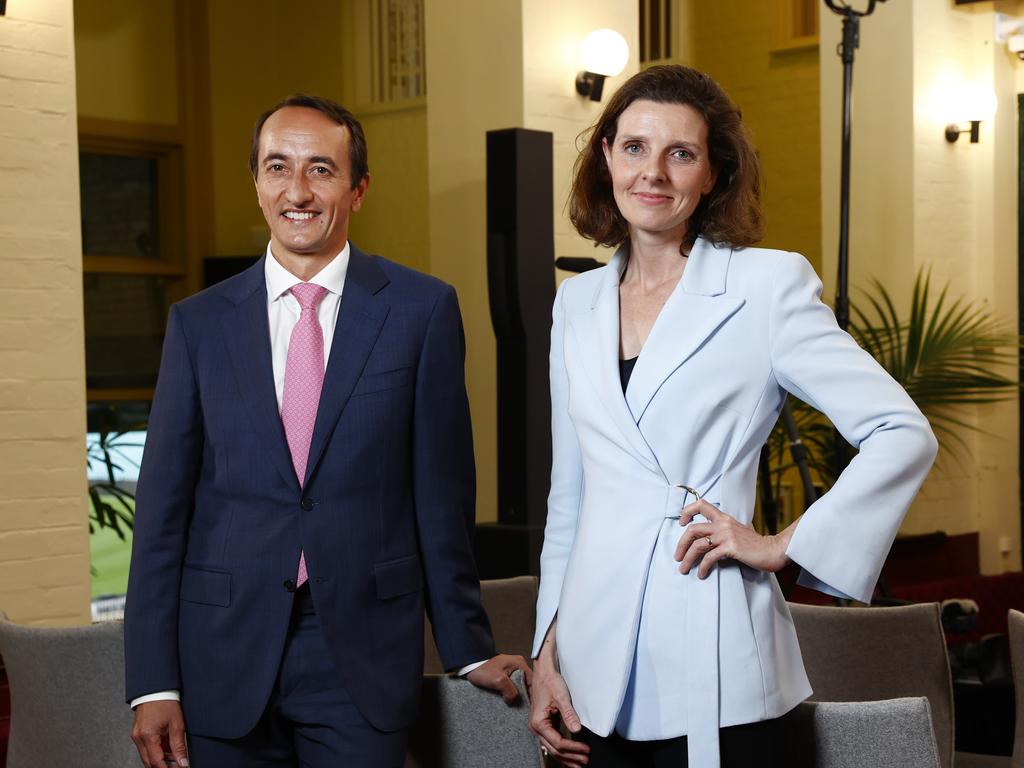
What might a luxury belief be? In the context of our upcoming election, a luxury belief might be a policy platform that is likely to make rich voters feel good about themselves at the ballot box while driving up the cost of living for the poor. The policy platform of the teal independents – the 22 upper-middle-class women running on a platform of action on climate change, gender equality and integrity reform – fits this description perfectly.
While climate change is an important issue that needs to be addressed by our politicians, and while we do need to scale up our use of clean energy, the teal independents propose fanciful solutions that, if implemented, would unfairly punish those who can least afford it.
Evidence is accumulating around the world that renewables drive up overall energy prices. The general problem with renewables is that the sun doesn’t always shine and the wind doesn’t always blow, and without ways of storing energy – such as batteries – solar power has to be blocked on particularly sunny days so power grids are not blown out.
Electricity markets are incredibly complex. But the basic problem is that solar panels and wind turbines generate too much energy when we don’t need it and not enough when we do. And this drives up power prices.
Today, we have examples from around the world of what happens when an aggressive renewables energy agenda is pursued, and the results are not what we should be hoping to replicate here in Australia.
Germany, for example, leads the world in transitioning from fossil fuels to renewable technologies. Yet it still gets only 12 per cent of its total energy from renewable sources, and its electricity prices are among the highest in Europe. Energy prices today in Germany are 52 per cent higher than they were just a year ago, following record price rises last year.
In the US, California has been the state to lead the charge in transitioning to renewable energies. Electricity prices there are some of the highest in that nation, rising 42-78 per cent between 2010 and 2020. Observers now are arguing these price rises have contributed to the state’s horrific poverty problem.
A 2019 working paper by economists at the Energy Policy Institute at the University of Chicago found, in the US, policies that mandated use of renewable energy – adopted by 29 states and Washington DC – led to considerable increases in electricity prices while delivering only a marginal reduction in overall CO2 emissions. They concluded that implementing policies that mandated renewable energy usage was an expensive way of achieving greenhouse gas reductions.
The unreliability of renewable energy technologies does not mean we have to give up on mitigating climate change. There is a source of clean energy that is incredibly reliable. That source of energy is nuclear power.
For some reason, however, the teal independents remain mute on the power of nuclear energy to deliver reliable clean energy, safely and securely. If you look at Allegra Spender’s, Kate Chaney’s or Kylea Tink’s websites for information on nuclear energy you will find nothing. Zali Steggall has gone further and has opposed lifting the moratorium on developing small modular nuclear reactors in Australia.
If one sincerely believes we are in a “climate emergency” why would one oppose the development of clean energy that can scale? Could it be because the main financial backer of the teal independents does not have investments in nuclear energy – while having many in renewables? It is impossible to know for sure, and we should give them the benefit of the doubt.
At the same time, however, we should make strong efforts to resist the Americanisation of our politics whereby well-funded lobbyists distort democratic processes for their own benefit.
Writing in Quillette, Henderson has observed: “The chief purpose of luxury beliefs is to indicate evidence of the believer’s social class and education … Affluent people promote (certain ideas) because it advances their social standing, not least because they know that the adoption of those policies will cost them less than others. The logic is akin to conspicuous consumption – if you’re a student who has a large subsidy from your parents and I do not, you can afford to waste $900 and I can’t, so wearing a Canada Goose jacket is a good way of advertising your superior wealth and status. Proposing policies that will cost you as a member of the upper class less than they would cost me serve the same function.”
Advocating for solar and wind technologies as a solution to climate change serves the same function. Supporting a teal independent signals that you are educated and care about the correct moral issues of our time. But, more than that, it also signals that you are wealthy.
When energy prices rise, as they are likely to do, it will not matter to you as much as it will matter to the single mother or the student struggling to pay their bills. In advocating for these policies, the teal independents are running on a platform of luxury beliefs. Perhaps a more appropriate descriptor for them is the lobby for green white privilege.
Claire Lehmann is the founding editor of Quillette.








In 2019, Yale PhD candidate and former US Air Force veteran Rob Henderson coined the term “luxury beliefs” to describe attitudes that operate as status symbols for the rich but that in practice are costly for the poor. Drawing on sociologist Thorstein Veblen’s concept of conspicuous consumption, Henderson argued that while in the past the upper-middle class displayed their wealth via luxury goods such as fur coats, today they signal their status with luxury beliefs.